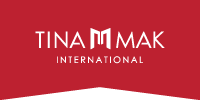China's New Middle class Fueling Growth
China’s economic Great Leap Forward stands as one of the defining moments of the closing of the 20th century. Now an economic powerhouse, China and its $3.7 trillion in foreign exchange reserves are viewed by some with fearand trepidation. Others see it as an immense opportunity to create more widely shared prosperity, bring people closer together and remove barriers in the way of understanding and peace.
I am one of the latter.
The exponential growth of the Chinese economy and the remarkable rise—creation, really—of the middle class in China is an entirely new factor. Dominic Barton, global man- aging director of McKinsey & Company, estimates that by 2022 China’s middle class should number over 630 million; although astounding, this figure would still represent only 45 percent of China’s population.
Armed with savings and disposable income, an increasing number of Chinese have entered the North American reaestate market. Some families are looking fo a safe haven for their life savings; others seek a place to retire. Asprosperity spreads and its economy grows, there are an- other 600 million people in China striving to reach middleclass status.
While this undoubtedly creates challenges for Chinese policy makers, it represents a tremendous economic opportunit for North America, which has become a highly favored destination for Chinese investors. The stability of the political and investment climate, relatively low pric- es, and attractive location compared to other key markets,make North America a powerful magnet. Mainland Chinese, now cash rich, are actively searching for new places to de- ploy their capital.
Since the collapse of the Soviet Union, previously closed economies have joined the community of trading nations. This has created a new-shared prosperity and burgeoning middle class in developing countries. Nowhere has the pos- itive and extensive consequences of this new reality been more apparent than in China.China will continue to grow for the foreseeable future, fu- eled by a new and increasingly sophisticated middle class.
This newly prosperous sector will aggressively seek out investments in North American real estate, in part as a safeguard against political uncertainty at home. Trade and investment is a sign of strength and vitality. There’s no better leading indicator of a healthy and robust economy than people putting their money in hard assets like real estate. And there’s no better testament to us, or a more tangible expression of confidence in our future eco- nomic prospects, than investment in our real estate market.
Reprinted with the permission of NAWRB
Magazine, Volume 4 Issue 4, 2015
Tina Mak, the Founding President of Areaa Vancouver, was born and raised in Hong Kong and educated in England. Flu- ent in Cantonese, Mandarin, and English, she started her real estate career in 1992after immigrating to Vancouver in 1991. Since 1992, Ms. Mak’s professionalism has put her in the Top5% in the Vancouver real estate industry, as well as within the Coldwell Banker organization.


